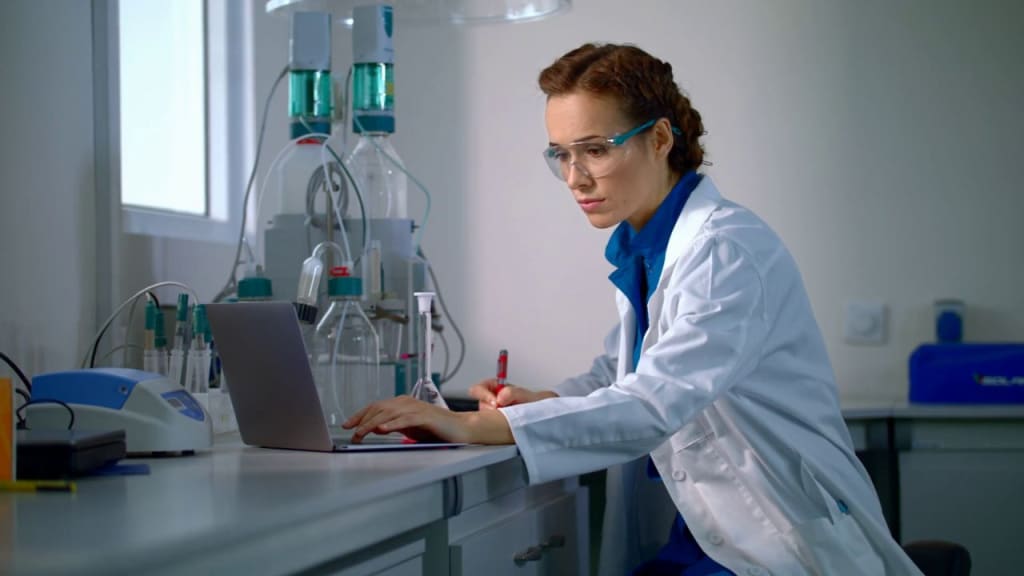Researchers Find New Way of Boosting Chemical Reactions Using Electricity
Unleashing the Power of Electricity: Revolutionizing Chemical Reactions

Introduction
In a groundbreaking discovery, scientists at the University of Chicago have identified a novel method of enhancing chemical reactions through the application of electricity. This breakthrough, reported in Nature Catalysis, not only advances the field of electrochemistry but also provides a promising avenue for more sustainable and efficient reactions in the manufacturing of pharmaceutical candidates.
Understanding the Fundamentals
The Electrode Interface
Anna Wuttig, UChicago Neubauer Family Assistant Professor and senior author of the study, expresses the primary goal of understanding the fundamental processes at the electrode interface. This comprehension is crucial for predicting and designing more efficient chemical reactions, marking a significant step towards a future where electricity guides reactions.
The Complexity of Electrochemistry
While electricity proves to be a catalyst for increased output in certain chemical reactions, electrochemistry itself is a complex field. Inserting a conductive solid (an electrode) into the mix to provide electricity introduces a layer of complexity, as molecules interact not only with each other but also with the electrode. Scientists grapple with the challenge of untangling the roles each molecule plays in this intricate dance.
Electrochemistry: A Unique Design Lever
Anna Wuttig proposes viewing electrochemistry as a unique design lever, offering possibilities not found in other systems. To delve into this, the research team focuses on the catalytic potential of the electrode's surface—the key player in providing electricity to reactions.
The Quest for Systematic Control
Unraveling Molecular Interactions
Despite hints that the surface of the electrode is catalytic, systematic control of molecular interactions remains a challenge. The team faces the intricate task of deciphering how to control these interactions at the molecular level.
Tinkering with Common Reactions
The team turns its attention to a commonly used reaction in pharmaceutical chemical synthesis, aiming to form a bond between two carbon atoms. Theoretical predictions suggest a 100% yield when using electricity, but lab results fall short.
Overcoming Challenges
Identifying the Culprit: The Electrode's Presence
The team theorizes that the electrode's presence diverts molecules away during the reaction, leading to lower yields. A breakthrough comes in the form of a key ingredient—the addition of a Lewis acid to the liquid solution redirects these molecules, resulting in a near-clean reaction.
Visualizing Molecular Processes
Special imaging techniques provide a glimpse into reactions at the molecular level. The modulator’s addition profoundly influences interfacial structure, offering a visual understanding of the process instead of treating it as a black box.
Toward Predictability and Control
This crucial step allows for a path forward, not only in using the electrode in chemistry but also in predicting and controlling its effects. The added benefit is the potential reusability of the electrode for multiple reactions, marking a significant stride towards sustainable synthesis.
Exciting Future Prospects
Anna Wuttig expresses enthusiasm about the future, anticipating the application of these concepts and strategies to address various synthetic challenges. The research conducted at the University of Chicago opens doors to a new era in electrochemistry, where electricity becomes a guiding force in chemistry, promising greener and more efficient chemical processes.
Frequently Asked Questions
- How does electricity impact chemical reactions?
Electricity acts as a unique design lever, enhancing molecular interactions and making reactions more sustainable.
- What challenges does electrochemistry pose?
Electrochemistry introduces complexity, especially in understanding molecular interactions at the electrode interface.
- Why is systematic control of molecular interactions crucial?
Systematic control is essential for predicting and designing more efficient chemical reactions at the molecular level.
- What role does a Lewis acid play in redirecting molecules?
A Lewis acid added to the liquid solution redirects molecules during reactions, resulting in a cleaner and more efficient outcome.
- Why is the reusability of the electrode significant in synthesis?
The potential reusability of the electrode marks a step towards sustainable synthesis, promoting environmentally friendly practices.





Comments
There are no comments for this story
Be the first to respond and start the conversation.